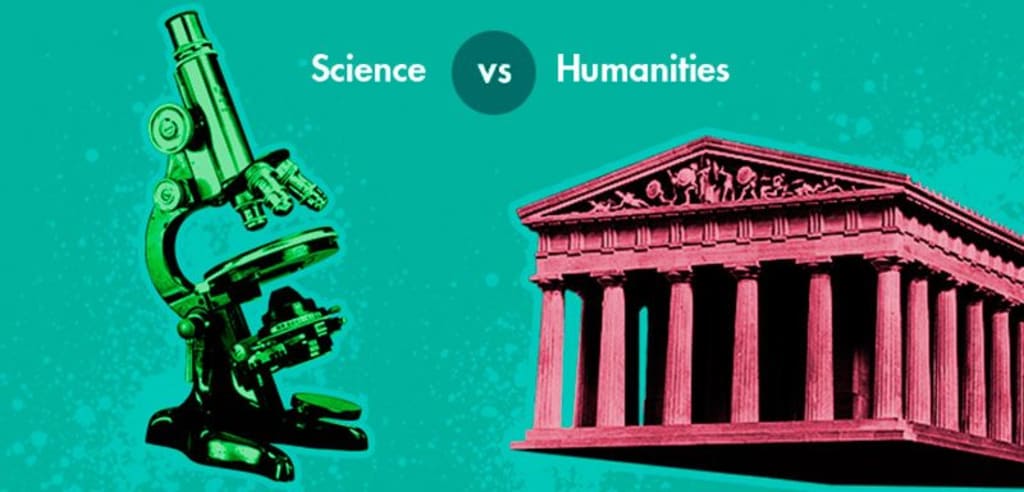Should Students be Bracket as to study Science and Humanities?
Storms of educational controversies is neither a characteristic of the pop culture nor limited to any country.

I think the division is useful for studying, but it should be divided into sub-categories rather than just this. But believe that, whether it is valid or not is difficult to know. Nowadays, Vietnam is also a primary-secondary, and the humanities seem to be considered cheap.
Never appreciate a student who is naturally good but lacks emotion in humanities issues. Never like people who are good at Humanity but who are deficient in logic.
Among the fiercest of which must have been whether students should be bracketed as to study Science and humanities from the very beginning.
Such a controversy, to all appearances, has been intermittently sparked off among students themselves. I'm, thus, at this moment, putting forward the three major questions in this discussion session. Albeit not addressing any practical issues, they are, by all means, critical.
1. From which foundation have Science and Humanities been bracketed?
Lest the controversial left and right arguments, we've no other work on human nature, or whether one's born for Science or humanities.
To a certain extent, a Japanese study has since evidenced that the sciences and humanities'' brain structures, notably the prefrontal cortexes, illustrate considerable differences. It acts as a precursor to the academic bias that sciences are more or less under related to autism, while their counterparts are somewhat empathetic.
Given that, the study scope is actually relatively narrow, forasmuch as the study itself is ill-cited, and yet to reach any specific conclusion. Even if our interests do diverge to commodious with either Science or humanities, would this be enough to facilitate an educational bracketed model?
What are students really up to once they're steadfast to study Science, without humanities or the other way around? Is it to ease the crippling burdens from a massive, credit-driven course design?
2. The peon's role
Most of the articles we could ever find on Science, and Humanity revolve around "why is humanity still crucial within a world keying on STEM," "why can't Science ever completely oust humanity?", " "how critical Humanity is to outstanding sciences students" without any counterargument.
Which looks as if it's the phone that is dead. The fact has it that Humanity has recently witnessed a year-on-year 5-to-10% decline in the number of Bachelor's Degree. In an industrialized world, little by little transitioned to AI, Big Data, energy ... the only way out for the watered-down major has been "doomed" vanishing. The free market laws have it that Humanities'' dying is by no mean butterflies in our stomach since this spells out its inferior. Or doesn't it?
3. What is this entire education system?
At this point, the answer to the very question I put forward in the title becomes an as much fundamental question: What are the actual motivations behind learning, at either the micro or macro perspective?
Given that education is a "filter" to "filter out" future productive laborers and ethical citizens, at the very core, under an individual perspective, what are we studying? To earn a living, to become a socially qualified individual, or to explore the world we're in? Then why are we negotiating, even study - what seems of some help to us?
After all, should we ever satisfy the insatiable demands of students already with a "plethora of opinions and dearth of knowledge" (compared to educational experts)?
I realize that Science is already present in every aspect of life, so the predominance of Science in schools is what should happen.
But the fact that people increasingly have strange needs and even have extraordinary ones, the Humanities factor will limit everything. So also, if students are more Science-oriented, they should be aware of the importance of Humanities.
About the Creator
mamie jeri
Substitute 'damn' every time you're inclined to write 'very;' your editor will delete it and the writing will be just as it should be.






Comments
There are no comments for this story
Be the first to respond and start the conversation.